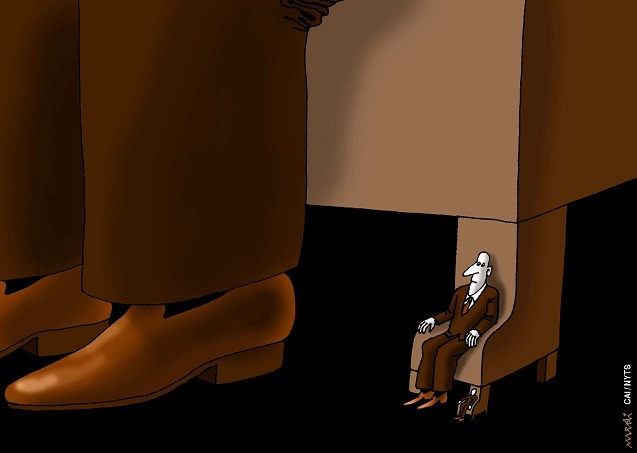
Support justice-driven, accurate and transparent news — make a quick donation to Truthout today!
I’ve been thinking about how we talk about – or don’t talk about – the desirability of low inflation targets.
As I noted recently, the International Monetary Fund’s World Economic Outlook report makes a compelling case for raising the target above 2 percent – but avoids saying so explicitly, resorting to coded euphemisms. Meanwhile, inflation paranoia is very much a partisan thing. In my notes for a recent class at Princeton, I listed the signatories of an open letter to Ben Bernanke, then the chairman of the Federal Reserve, from 2010 warning about dollar “debasement” from quantitative easing; it’s obvious that everyone on the list is a highly committed Republican, and some people with the right ideological credentials are on board even though they have no relevant professional credentials. (William Kristol and Dan Senor, monetary experts?)
So what’s going on here? Let me suggest that it is, ultimately, a class thing. Monetary policy isn’t really technocratic and politically neutral; moderate inflation may be good for employment, especially when you’re trying to work off a debt overhang, but it’s bad for the wealthiest 0.1 percent of Americans. And that fact ends up exerting a huge influence on the discussion.
Let me start with a bit of a historical puzzle, or rather a puzzle about how history is remembered. Throughout the recent debate over monetary policy in the United States we have heard apocalyptic warnings about Zimbabwe/Weimar and all that, but also constant invocations of the 1970s. My side of the debate has made a point of explaining why this situation is nothing like the ’70s. But ask a different question: How did the ’70s get framed as the ultimate bad time?
For sure they weren’t good – but the really bad times for ordinary working families were the big recessions, which took place during the Reagan administration, to some extent under George H.W. Bush and, above all, after the recent financial crisis. Think about how weird it is, given this history, for people in 2010 or 2011, amid the wreckage, to be saying “Watch out – if we’re not careful this could turn into the ’70s!” (cue ominous soundtrack).
But there were some people for whom the ’70s really were the worst of times – namely, owners of financial assets. And who cares a lot about financial assets, and not so much about labor income? The 0.1 percent who, according to research by the economists Emmanuel Saez and Gabriel Zucman, “only” get about 4 percent of total wages, but have more than 20 percent of the wealth and surely a larger share of financial assets.
The economist Carmen Reinhart has in the past argued persuasively that highly indebted countries normally work off their debt in large part through “financial repression” – keeping interest rates low while inflating part of the debt away. The thing is, although this sounds bad, it actually isn’t for the vast majority of people.
Britain did far better through financial repression after World War II than it did through orthodoxy after World War I. But there is one small but influential group that is in fact hurt by financial repression: again, the 0.1 percent.
Now, I don’t think the 0.1 percent and their defenders are secretly twirling their mustaches, snickering over how they’re using delusions of sound policy to enrich themselves at the expense of the 99 percent. The Koch brothers don’t even have mustaches.
But I do think that the very real conflict between what’s good for oligarchs and what’s good for the economy is, indirectly, having a powerful effect in distorting the debate.
Trump is silencing political dissent. We appeal for your support.
Progressive nonprofits are the latest target caught in Trump’s crosshairs. With the aim of eliminating political opposition, Trump and his sycophants are working to curb government funding, constrain private foundations, and even cut tax-exempt status from organizations he dislikes.
We’re concerned, because Truthout is not immune to such bad-faith attacks.
We can only resist Trump’s attacks by cultivating a strong base of support. The right-wing mediasphere is funded comfortably by billionaire owners and venture capitalist philanthropists. At Truthout, we have you.
Truthout has launched a fundraiser to raise $45,000 in the next 8 days. Please take a meaningful action in the fight against authoritarianism: make a one-time or monthly donation to Truthout. If you have the means, please dig deep.